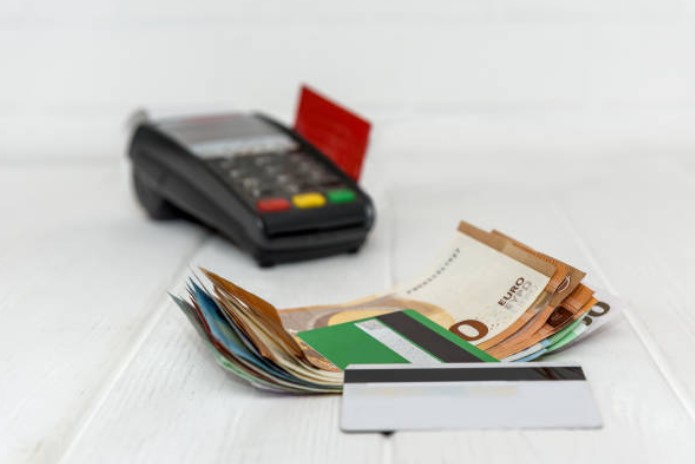Cash or Credit? Unveiling the Political Economy of Plastic in Recessionary Times

Cash or Credit? Plastic’s Reign in Recession’s Shadow
The satisfying tap of plastic against a payment terminal, the crinkle of crisp bills in sweaty palms – a seemingly mundane choice that carries profound economic and political implications. This decision between “cash or credit” takes on a whole new meaning when recession tightens its grip, transforming personal transactions into microcosms of our society’s fraught relationship with plastic. So before you activate your next Destiny Mastercard, read further to understand the implications of credit cards in times of recession.
Plastic Paradise, Debt’s Underbelly: Tracing the Rise of Credit Cards
Credit cards weren’t always ubiquitous companions. Born in the post-war boom, they catered to an aspirational middle class eager for a taste of luxury. Easy access to credit-fueled consumption, driving economic growth like a rocket taking off. Governments, recognizing this engine, fueled the flames with tax breaks and favorable regulations for the finance industry.
This symbiotic relationship blossomed. Banks showered the world with plastic-like confetti, while consumers, lured by rewards and points, happily swiped their way through life. But beneath the gleaming surface of this plastic paradise lurked a dark underbelly: unchecked debt soaring like an out-of-control balloon, squeezing household budgets and leaving many vulnerable to the slightest economic tremor.
Swiping Through Boom and Bust: How Government Policies Shaped Plastic Power
Recessions like the one we face today expose the precariousness of plastic-fueled economies. Job losses and income cuts make juggling mounting debt an Olympian feat. Government bailouts, while necessary, often end up enriching the very financial institutions that profited from the pre-recession binge, leaving a bitter taste of injustice in many mouths.
So, in this economic tightrope walk, where does all this leave us? Are we forever destined to be beholden to the plastic gods? Not necessarily. This downturn presents an opportunity to re-evaluate our relationship with credit and explore alternative payment methods, venturing beyond the well-worn path of plastic.
The Recession’s Reckoning: When Debt Becomes a Double Bind
For many, the recession’s harsh reality has been a brutal wake-up call. The once-convenient plastic crutch has become a heavy chain, the dream of rewards and points replaced by the nightmare of mounting interest and late fees. This is the reckoning, the moment when the consequences of unchecked debt come knocking, demanding to be dealt with.
READ ALSO: Forgiving Student Debt Could Boost The Economy
Beyond Plastic: Exploring Alternative Payment Landscapes
The rise of digital currencies and online payment platforms paints a picture of a potentially cashless future. These alternatives, however, come with their own set of challenges and political considerations. Concerns around privacy, data security, and potential government control cannot be ignored in this brave new world.
Ultimately, navigating the economic and political landscape of plastic in a recession demands a mindful approach, a delicate dance between convenience and consequences. Here are some steps we can take to move forward with wisdom and purpose:
- Activate your credit card responsibly: If you must use credit, choose cards with low-interest rates and rewards programs that align with your spending habits. Prioritize paying off your balance monthly to avoid accumulating debt, treating your plastic like a helpful tool, not a bottomless well.
- Explore budgeting tools and financial literacy resources: Understanding your finances and setting realistic spending goals is crucial for weathering economic storms. Knowledge is power, and equipping yourself with financial literacy can help you make informed choices, ensuring your money stretches further and worries shrink.
- Advocate for fair and responsible lending practices: Push for regulations that protect consumers from predatory lending and promote financial inclusion. Let your voice be heard, urging for a financial system that serves all, not just those with the biggest plastic swords.
- Support the development of secure and equitable digital payment systems: While exploring the potential of cashless alternatives, prioritize data privacy and ensure access for all. In this digital age, financial inclusion cannot be an afterthought, but a cornerstone of any new system.
The choice between cash and credit is not just a personal one; it’s a reflection of our society’s values and priorities. By fostering economic fairness, responsible credit use, and a diverse financial ecosystem, we can emerge from this recession stronger, wiser, and with a healthier relationship with the plastic in our pockets. Let’s make our choices with mindfulness, our voices with purpose, and build a future where everyone has the tools to navigate the economic landscape, plastic or not.



